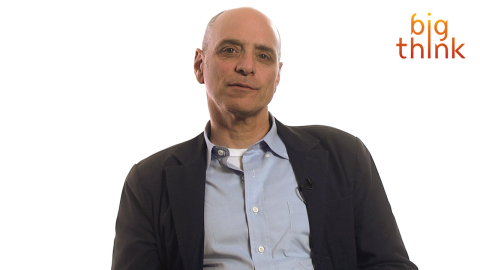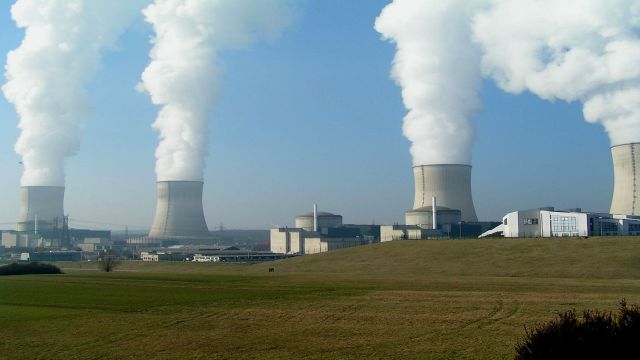Eric Schlosser: Nuclear Disaster Doesn’t Have to Be Inevitable

Author and investigative journalist Eric Schlosser discusses lessons learned from his 2013 book Command and Controlin today’s featured Big Think interview. The book places a keen focus on the inherent risks associated with the world’s nuclear weapon supply and raises questions about our worldwide illusion of safety. After a year of talking about the book, attending international meetings, and interviewing government officials, Schlosser says he’s still hopeful we’re not totally and completely screwed.
He walks through the necessary course of action moving forward in the video below:
The main takeaway here can be broken up into two main points with the first point highly dependent on the second. The first point is that we’re not automatically destined to blow ourselves to oblivion. This is good news! We’ve managed to proliferate doomsday devices to such a baffling degree that it’s a miracle we haven’t yet had any major accidents leading to considerable loss of life. There’s hope still that we’ll maintain this course as long as we abide by Schlosser’s point number two, which is “don’t become complacent.”
“There’s a natural kind of instinct to just get into bed, pull the sheets over the head, and not deal with this or dig a bunker and, you know, install high-speed internet and protect yourself from it. But there’s all kinds of ways that ordinary people can get engaged in this issue, get active on this issue, and make change.”
Here are the three main courses of action Schlosser suggests citizens lobby their governments to adopt:
1. Reduce the number of nuclear weapons in the world.
2. Prevent other countries from getting nuclear weapons.
3. Lock up all the bomb-grade uranium and plutonium in the world to prevent terrorists from getting a hold of it, stealing it, and making nuclear weapons.
Accomplishing these goals doesn’t guarantee we won’t all perish in a nuclear disaster, but reducing our extent risk is really all we can hope to do. Containing nuclear weapons needs to be at the top of everyone’s to-do list, says Schlosser, right up there with addressing climate change. The difference between the two is that humans could conceivably find a way to reverse or adapt to climate change. There’s no such opportunity for nuclear catastrophe, which is why it’s vital that nuclear containment doesn’t fall off our radar.





